- Category
- Life in Ukraine
Celebrating Easter on Ukraine’s Frontline with a Muslim Chaplain and an Orthodox Priest Who Once Engineered Missiles
-b94dd2f914c34e563511f8eca2be1434.jpg)
On April 20, Christians across Ukraine and around the world—Protestants, Catholics, and Orthodox—celebrated Easter together. We traveled to the front-line zone in the Zaporizhzhia direction to mark the holiday with the chaplains of the 108th Territorial Defense Brigade and see what Easter looks like for soldiers and civilians in a time of war.
In a village near Zaporizhzhia, we meet Pavlo, the head of the 108th Brigade’s chaplain service. We greet him with the traditional Easter phrase:
“Christ is risen!”
The customary response — “Indeed, He is risen!” — is well known. But Pavlo replies with a smile:
“Actually, I’m Muslim.”
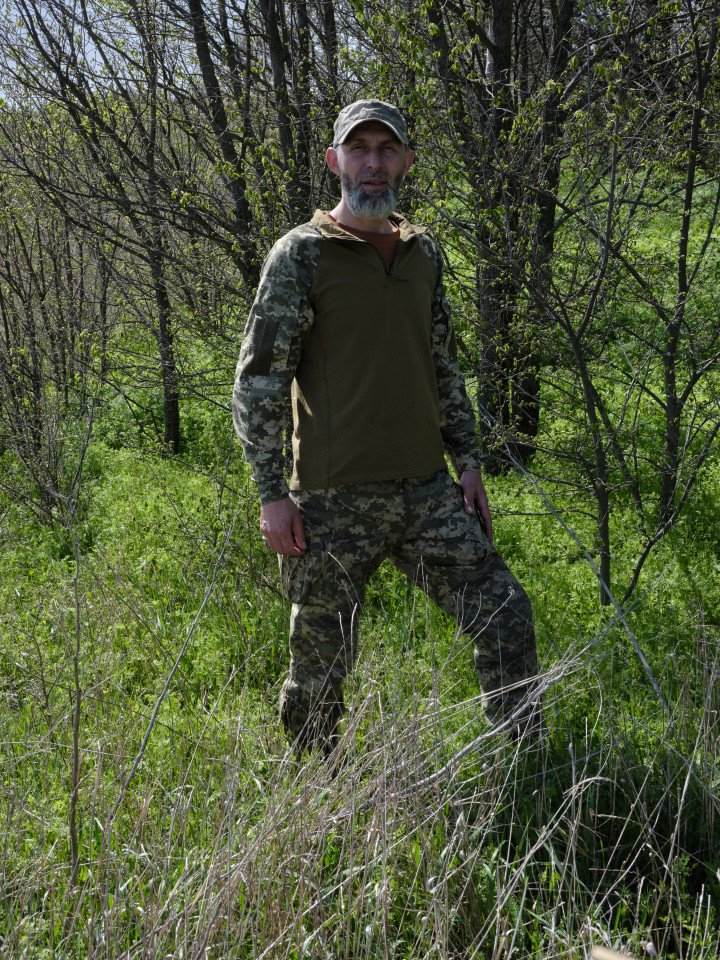
Before Russia’s full-scale invasion, Pavlo led a major Islamic cultural center and was part of the leadership of the Religious Administration of Muslims of Ukraine. But on the very first day of the war, he volunteered to fight. He served in the Azov-Dnipro battalion and saw action at some of the war’s fiercest fronts. Later, as he puts it, “some health issues” led him to become a chaplain. He took over leadership of the 108th Brigade’s chaplaincy just a few weeks ago. On Easter, he helps organize the Christian celebration for his comrade, Father Mykola.
As we walk toward Mykola, Pavlo explains that there are now around 350 chaplains serving in Ukraine’s military. The structure is similar to NATO armies, and many Ukrainian chaplains are trained abroad. Still, military clergy have a long history in Ukraine — one interrupted only by the USSR’s aggressive atheism.
We meet Father Mykola, unmistakably a Christian priest. A large cross hangs around his neck, and over his Ukrainian Armed Forces uniform, he wears a cassock, the official outer robe of Orthodox chaplains.
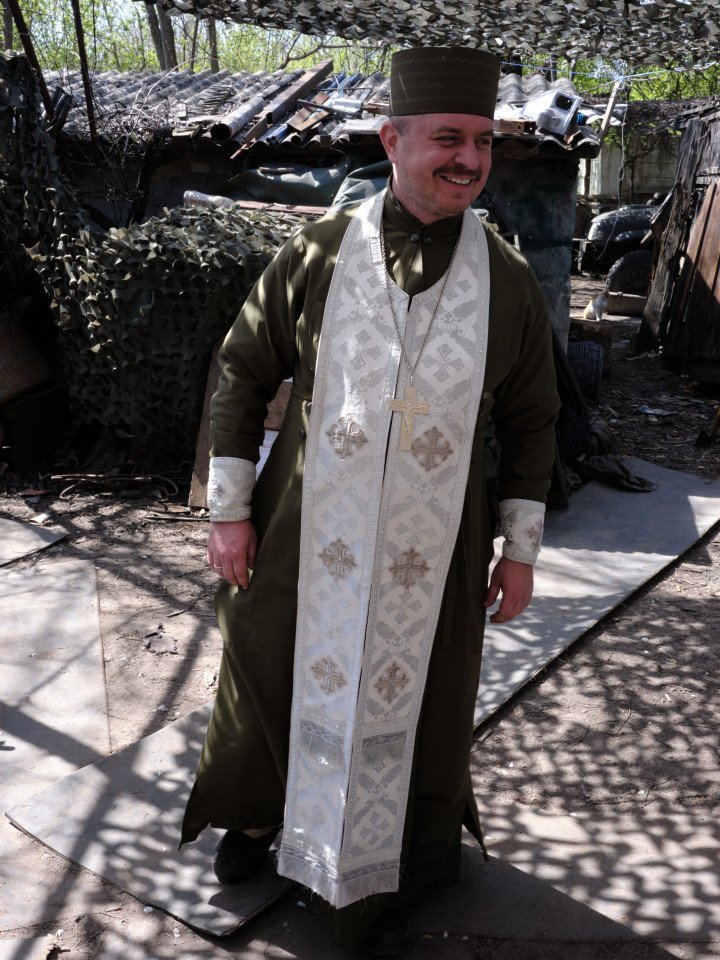
Father Mykola lays out the day’s plan: first, a visit to civilians for a worship service, then onward to military medics and soldiers.
The front line is just 10–20 kilometers away, and Russian shelling is constant. The scars of war are everywhere. Still, about a third of the local population remains. Some are already waiting at the community building. The local administrator gives a short speech, noting that students from a Kyiv school have collected care packages for children in the frontline zone. Around ten kids, aged two to ten, are in the hall. Each receives a large bag of treats — and, of course, paskas.
Paska is a traditional Ukrainian sweet bread baked only for Easter. One of the day’s most cherished traditions is bringing it to church to be blessed. In a war zone, the priest comes to the people—and this priest is also a military chaplain.
Father Mykola holds a brief service. Children hold lit candles and curiously examine the chaplain’s vestments, listening intently as he chants prayers. Finally, he blesses the people and their paskas with holy water, offering a solemn reminder: “Do not disregard the danger. The enemy is cunning. We’ve learned firsthand—the bigger the holiday, the heavier the attacks.”
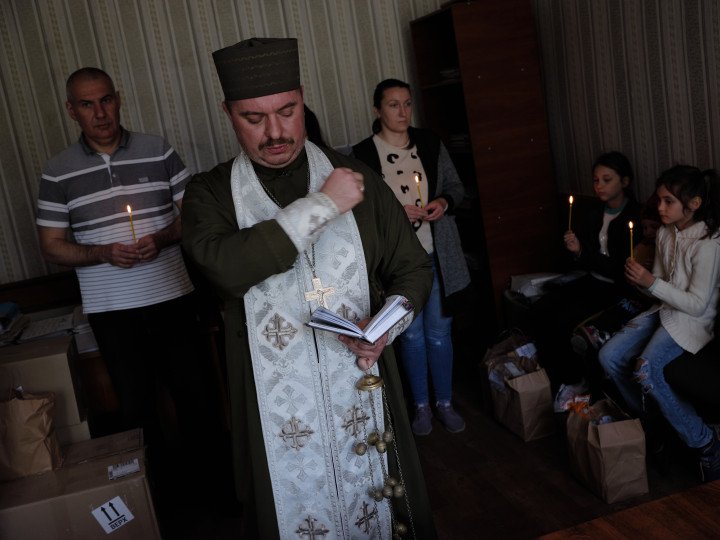
On the road to the next stop, I ask Father Mykola what he thinks about the announced ceasefire.
“That’s no ceasefire,” he says. “The reports show the attacks from their side continue. Right now, the Russians are using our orders not to return fire to move into the gray zone, demine it, and prepare for future attacks.”
Soldiers from other Ukrainian units along the front say the same. In some sectors, combat intensity hasn’t decreased at all. Later that day, President Zelenskyy reported that Russia had violated the Easter ceasefire 2,935 times.
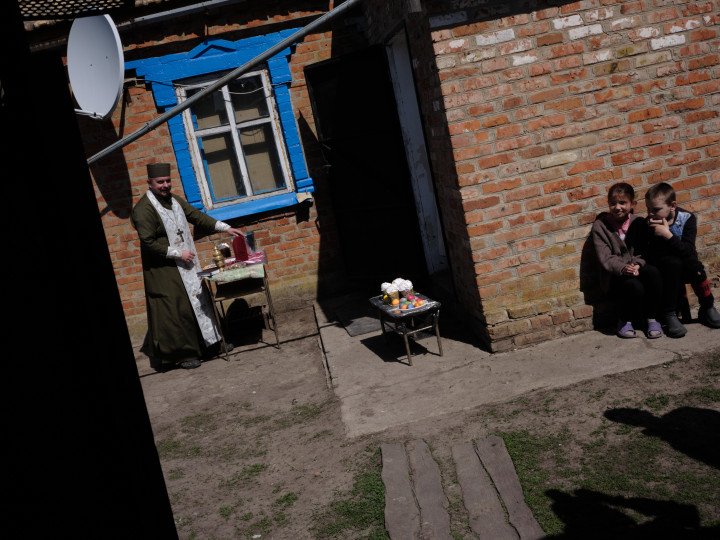
When medics joke
Before 2022, Mykola was a civilian volunteer helping soldiers. After Russia’s full-scale invasion, he studied at a seminary and served in a church. But eventually, he felt called to the front.
“My motivation was my shrinking contact list,” he says. “Friends who had gone to war were dying. I couldn’t stand aside, I felt God calling me—not just to fight, but to be a priest. I had a different background before seminary—I was a missile systems engineer. That’s part of why I chose to serve as a chaplain instead of bearing arms. I know what missiles do when they explode. Jesus was almighty, yet He acted through words, not force. That’s the path I chose, too.”
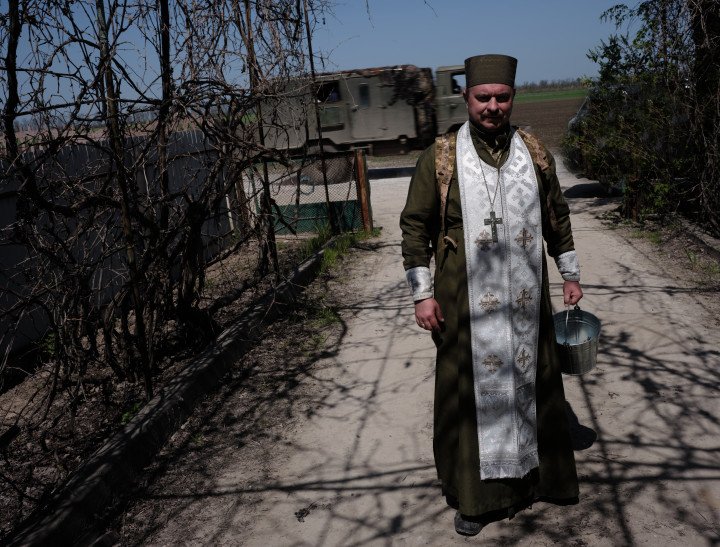
Ukrainian chaplains are officially prohibited from carrying weapons. Still, in a life-or-death situation, they may take up arms. Asked what he would do if surrounded by Russians, Father Mykola replies:
“I’d take off my cross and pick up a weapon. But then I’d spend years repenting for that sin.”
We arrive at several brigade medical units. The chaplain quickly blesses their paskas. In a nearby room, we see an operating table and bloodstains on the floor.
“I wish you more days sorting paperwork, boxes, and medicine,” says Father Mykola. “And fewer doing that critically important work you do. May there be fewer wounded. And may God be with you.”
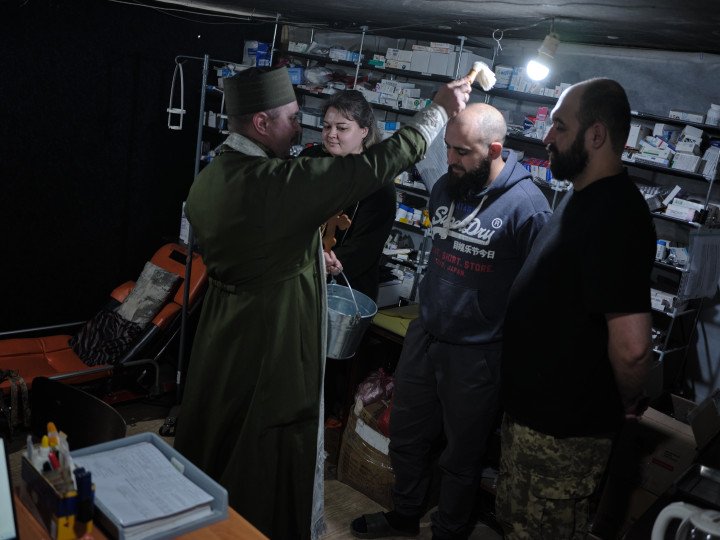
The chaplain sprinkles the medics with holy water. One reacts instantly:
“If we’d known you were coming with holy water, we’d have crushed some fizzy aspirin and sprinkled it on ourselves. Just imagine—you spray us, and we start fizzing!”
“Well, as a Muslim, I’m already fizzing for you,” laughs Pavlo.
Therapists from God
We head to the soldiers. A massive column of smoke rises from the woods nearby — likely the smoke of Putin’s so-called ceasefire.
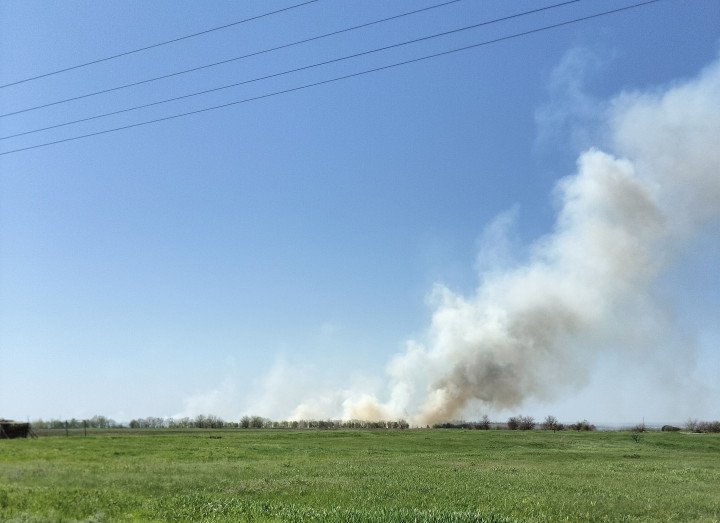
At the next location, it’s a double celebration. In addition to Easter, a soldier with the call sign Kari is turning 21. She’s served in the Ukrainian military for two years. Her father is also a soldier and is currently listed as missing in action. Not long ago, Kari was hit by a Russian portable missile system, suffering severe burns. After recovery, she chose to return to service.
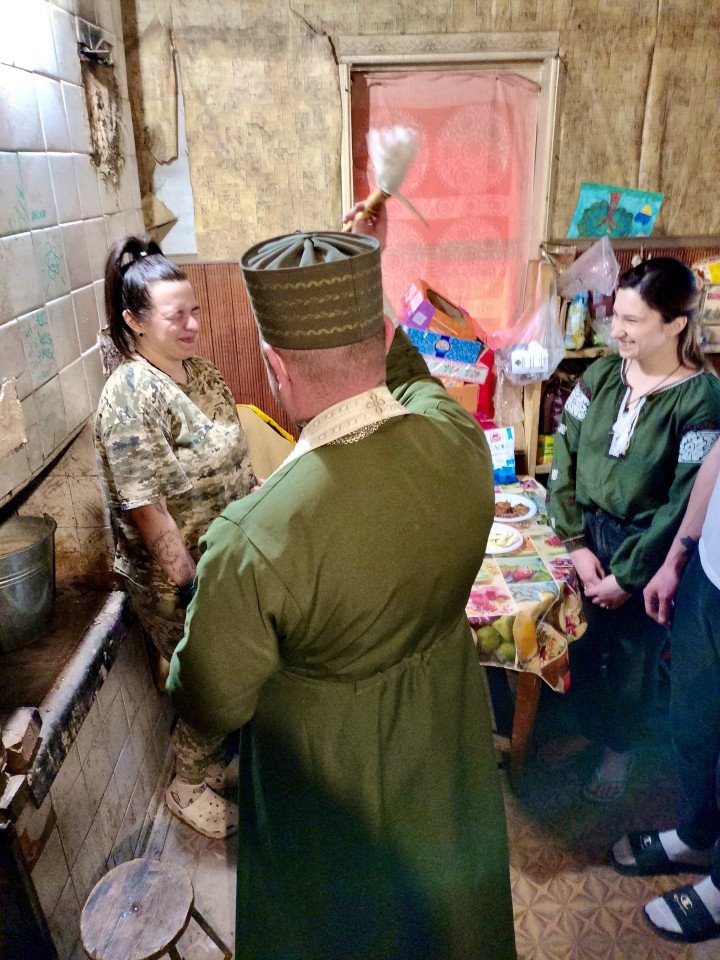
I ask Father Mykola whether war and its constant tragedies have changed him.
“I’ve become tougher,” he says. “When you’re sitting in trenches under fire, humility becomes more about discipline and resilience. Sometimes, it’s about anger. Do I hate the Russians? When shells land nearby—yes. I can’t understand how their civilian population stays silent, how they keep tolerating this war.”
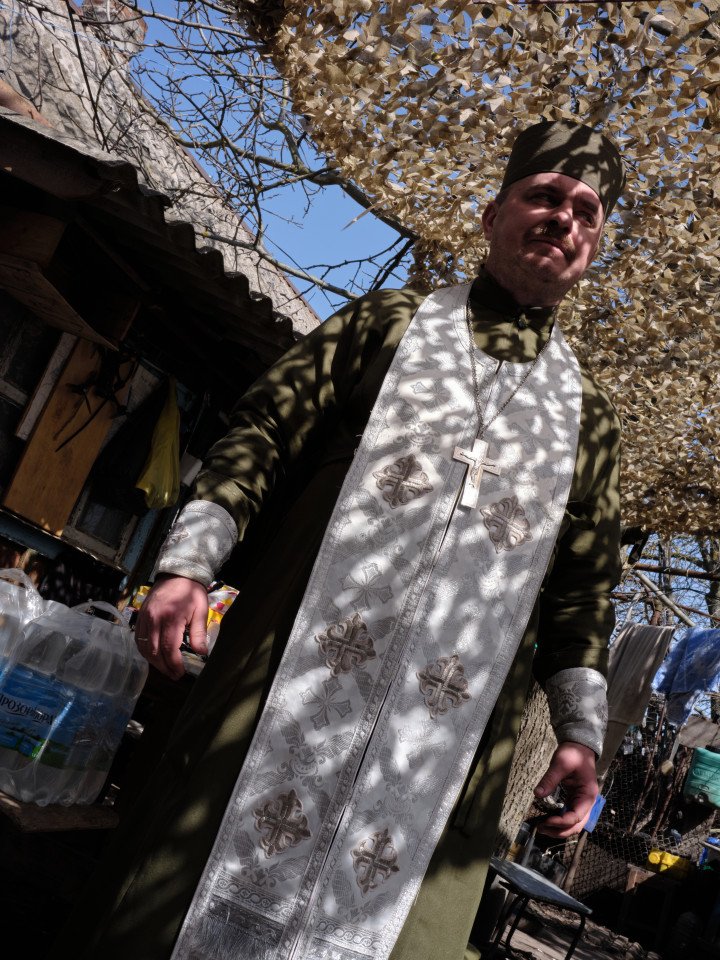
For him, nearby explosions are a regular occurrence. Chaplains go to the front-line positions—not the other way around. Gatherings are too dangerous, as the Russians will strike even at religious services. So Father Mykola wears not just a robe and uniform but also a bulletproof vest. Just last week, he says, he had to flee from an FPV drone three times. But because he’s always present at the front, the troops see him as a comrade and trust him.
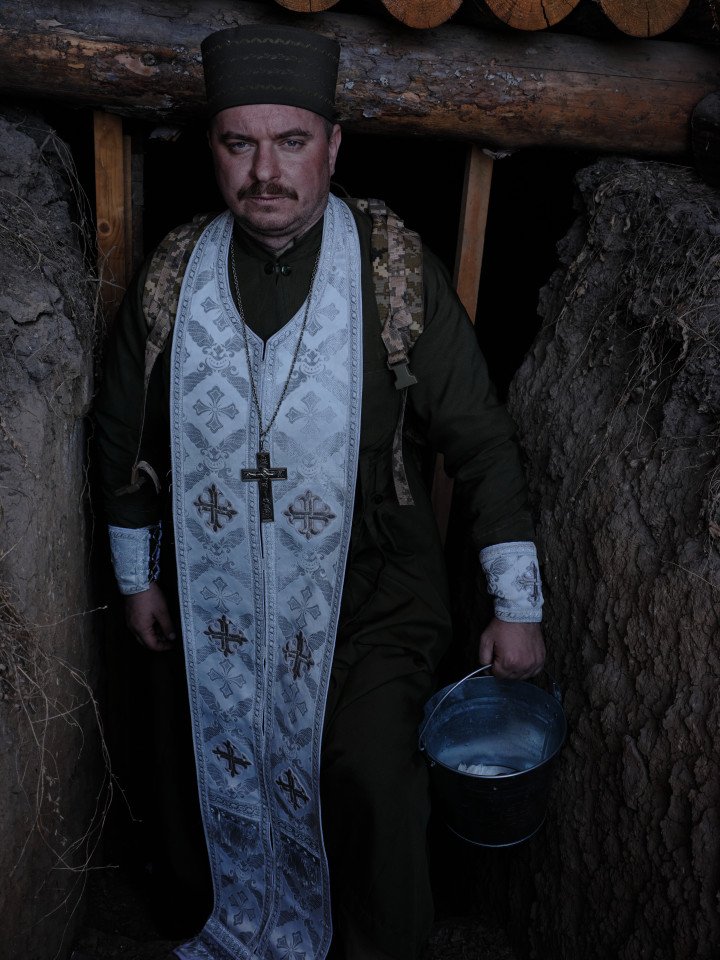
The Ukrainian Armed Forces have staff psychologists, but chaplains are often turned to as unofficial therapists. In fact, religious services and prayers are only a small part of their work.
“The most common issue is fear,” says Mykola. “A soldier is afraid to go out to a position, afraid he’ll be killed. The second is family problems. A guy might be a great warrior, but then he gets a call from home, a fight breaks out—and suddenly, he’s broken. There are also conflicts among soldiers or with commanders. Our status is unique—chaplains report directly to the unit commander. So we can listen to a soldier and, if needed, go straight to the commander.”
At every stop, Pavlo and Mykola greet people with smiles, handshakes, and light hugs—a far cry from the formality of civilian Orthodox clergy.
However, due to the constant Russian threat, services are brief. Father Mykola says a quick prayer, blesses the paskas and the soldiers, and we race down the broken roads of the Zaporizhzhia region once again. It takes several days to visit all the units. Mykola says afterward that he needs another few days just to recover his strength and voice.
At the end, we recall the famous phrase, “There are no atheists in foxholes,” likely first said by American chaplain William T. Cummings.
“It’s true,” says Mykola. “Everyone starts remembering prayers, piecing them together from whatever fragments they recall. We even have a guy in the brigade who believes in everything: God, Norse runes, and superstitions. I think he just hasn’t found his path yet.”
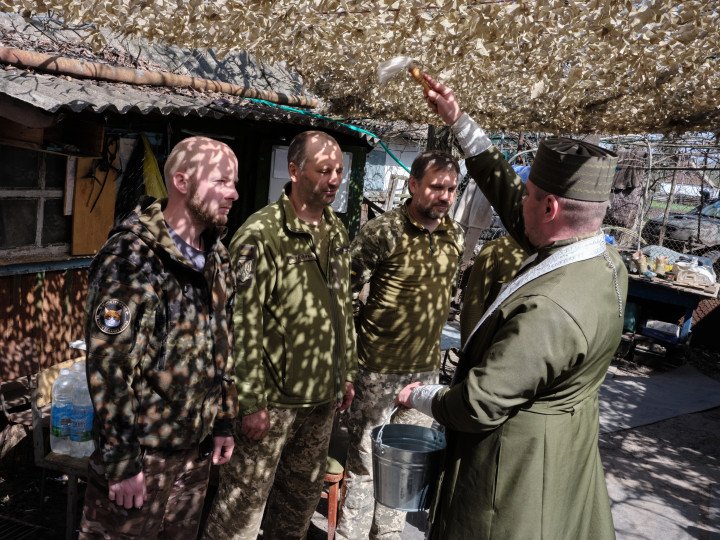
Before parting, I ask Father Mykola what it’s like to work with a Muslim chaplain like Pavlo.
“We’re fighting side by side,” he says. “Everyone who stands with us—they’re our brothers. They’re people of God.”

-0666d38c3abb51dc66be9ab82b971e20.jpg)
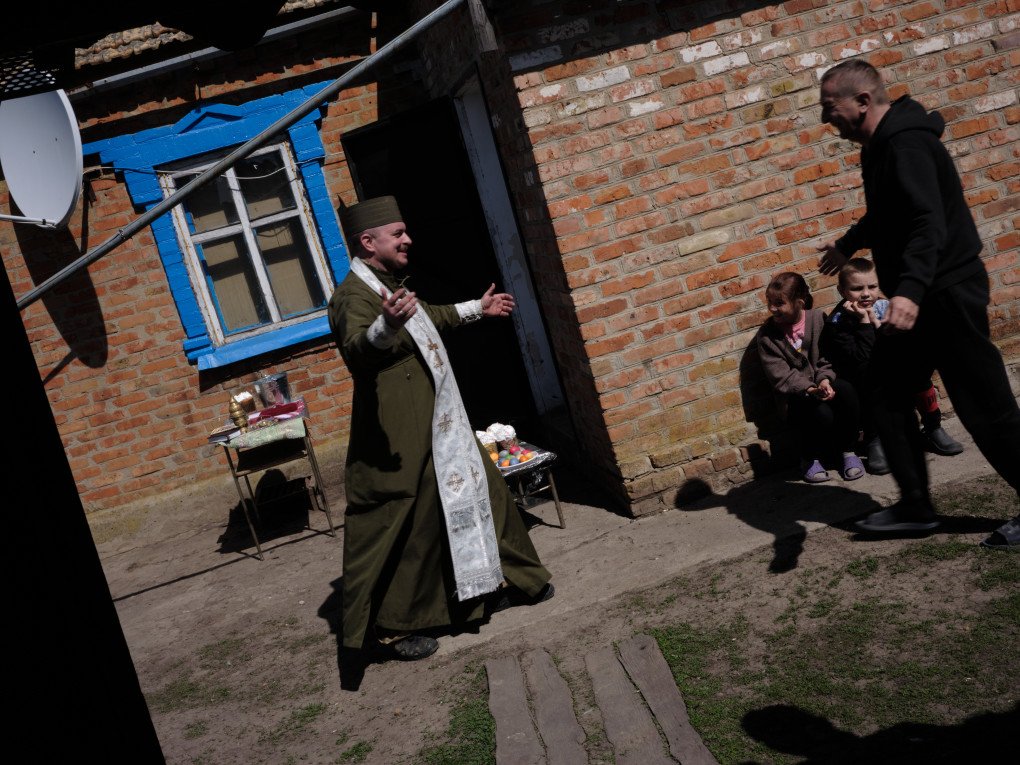
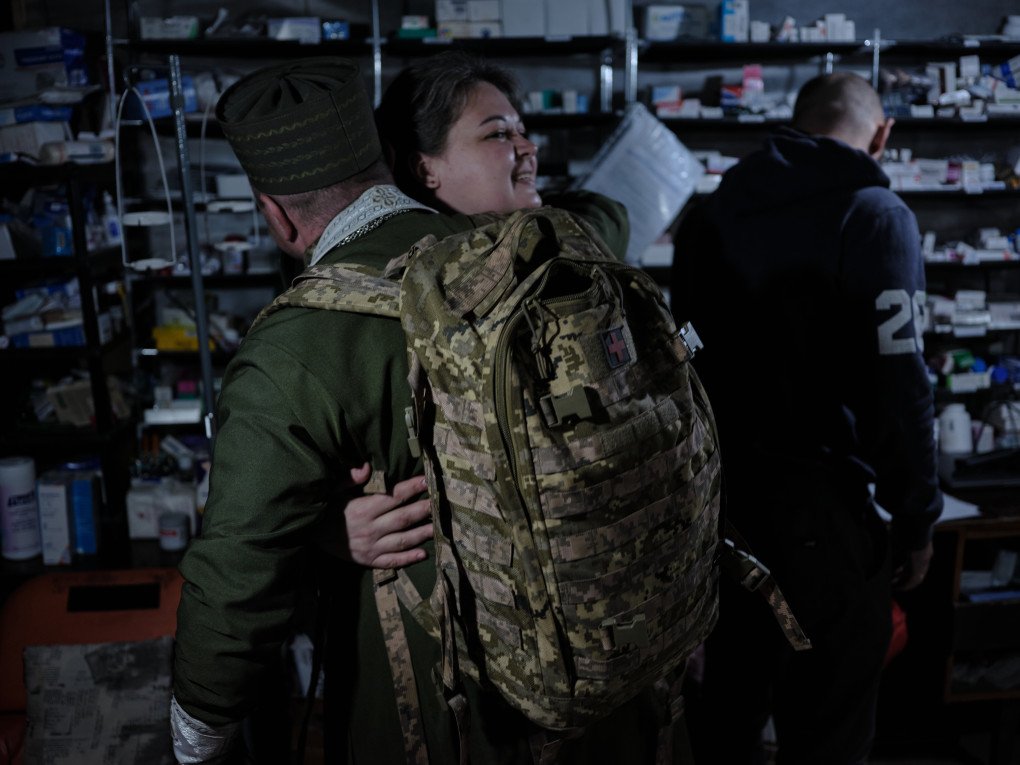
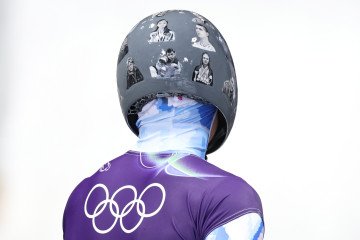
-6ead6a9dd508115a5d69759e48e3cad1.jpg)
-29a1a43aba23f9bb779a1ac8b98d2121.jpeg)
-7f50738271c122a9b5e663cb80703dd6.jpg)

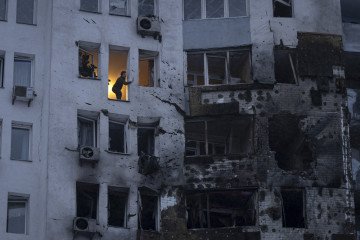
-554f0711f15a880af68b2550a739eee4.jpg)